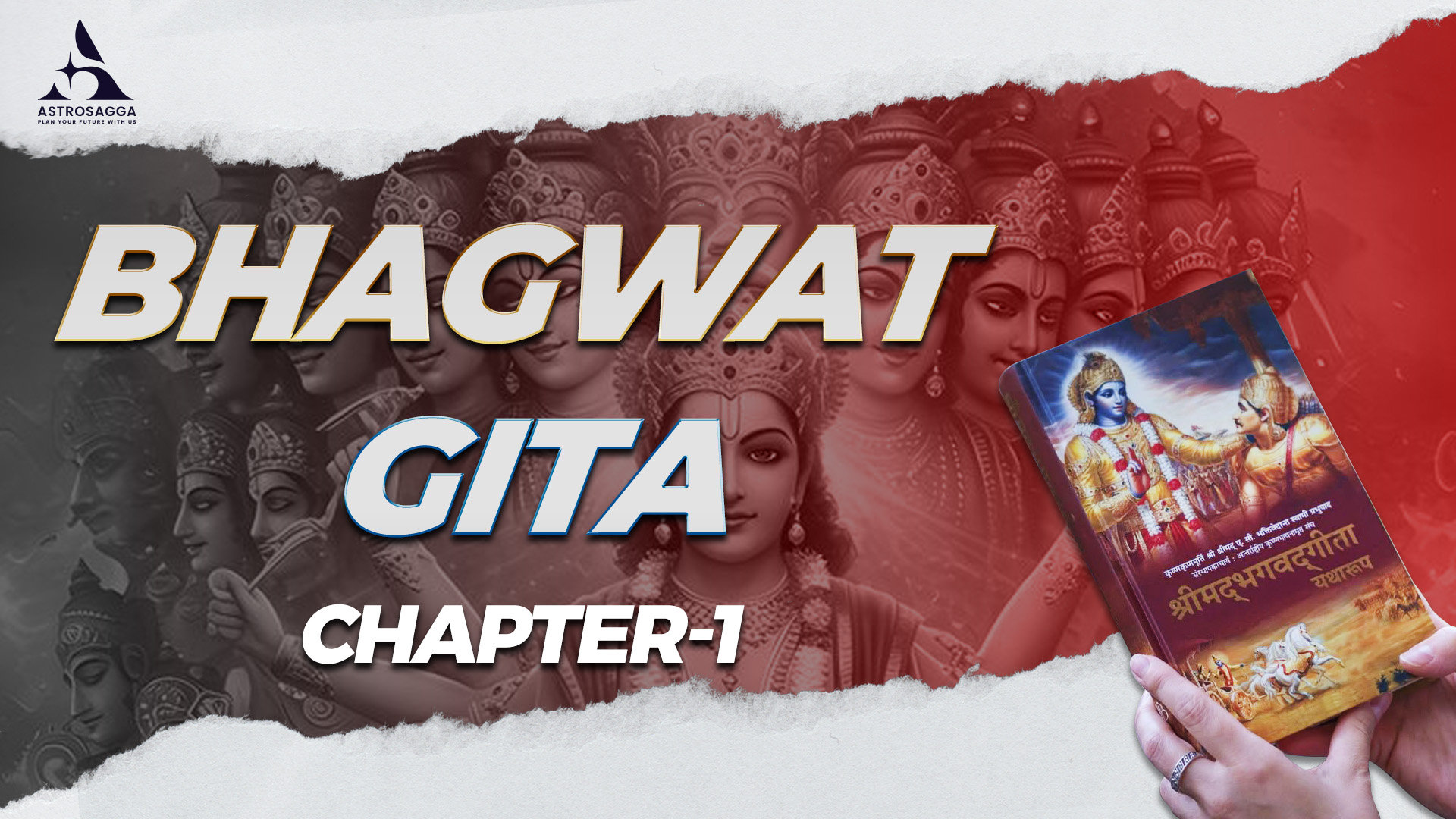The Bhagavad Gita Chapter 1, also known as Arjuna Vishada Yoga, sets the stage for one of the greatest spiritual conversations in history. Though it mainly describes Arjuna’s confusion and sorrow on the battlefield, it offers timeless wisdom for dealing with emotional struggles, indecision, and the fear of responsibility.
Let’s explore some powerful shlokas from Bhagavad Gita Chapter 1 and understand their practical relevance in daily life.
What Happens in Bhagavad Gita Chapter 1?
The chapter begins with the blind king Dhritarashtra asking his minister Sanjaya about the events on the battlefield of Kurukshetra. As the armies prepare for war, Arjuna requests Krishna to place his chariot between both armies. Upon seeing his own family, teachers, and friends on the other side, Arjuna becomes overwhelmed with sorrow, puts down his bow, and refuses to fight.
This inner turmoil is not just Arjuna’s—it’s the emotional dilemma faced by all of us at some point in life.
Read Also - Number 1 in Numerology: Meaning, Characteristics
1. Slokh 1.1 – Awareness of the Present Situation
“धृतराष्ट्र उवाच |
धर्मक्षेत्रे कुरुक्षेत्रे समवेता युयुत्सवः |
मामकाः पाण्डवाश्चैव किमकुर्वत सञ्जय ||”
Meaning: Dhritarashtra asked Sanjaya, “What did my sons and the sons of Pandu do when they assembled in the holy land of Kurukshetra, ready to fight?”
Practical Life Lesson:
Before any decision, ask yourself: “Where am I? What is the situation?”
Being aware of your present condition is the first step toward right action. Just like the battlefield, life presents us with conflicts. Start with observation and self-reflection.
2. Slokh 1.28-29 – Acknowledge Your Emotions
“दृष्ट्वेमं स्वजनं कृष्ण युयुत्सुं समुपस्थितम् ।
सीदन्ति मम गात्राणि मुखं च परिशुष्यति ॥”
Meaning: Arjuna says, “O Krishna, seeing my own people arrayed for battle, my limbs fail and my mouth is drying up.”
Practical Life Lesson:
It’s okay to feel overwhelmed. Emotions are part of being human.
Whether you're facing exams, interviews, responsibilities, or conflicts, learn to acknowledge your feelings without shame. This is the first step in gaining control over them.
3. Slokh 1.30 – Understand the Root of Fear
“गाण्डीवं स्रंसते हस्तात्त्वक्चैव परिदह्यते ।
न च शक्नोम्यवस्थातुं भ्रमतीव च मे मनः ॥”
Meaning: Arjuna says, “My bow slips from my hand, my skin burns, and my mind is reeling.”
Practical Life Lesson:
Fear creates confusion in mind and weakness in body.
Most of our fear comes from imagined outcomes or emotional attachment. Recognizing the root cause of fear—attachment, overthinking, guilt—helps in facing it better.
4. Slokh 1.31-32 – Duty Over Emotion
“न काङ्क्षे विजयं कृष्ण न च राज्यं सुखानि च।
किं नो राज्येन गोविन्द किं भोगैर्जीवितेन वा॥”
Meaning: Arjuna says, “O Krishna, I desire neither victory nor pleasure nor kingdom.”
Practical Life Lesson:
At times, your emotions may cloud your sense of duty.
In family life, career, or society, emotions like attachment and guilt may make you avoid difficult but necessary decisions. The key is to find balance—acknowledge your emotions but don’t let them paralyze your responsibilities.
5. Slokh 1.47 – Pause Before Reacting
“सञ्जय उवाच |
एवमुक्त्वार्जुनः सङ्ख्ये रथोपस्थ उपाविशत् |
विसृज्य सशरं चापं शोकसंविग्नमानसः ॥”
Meaning: Sanjaya says, “Having spoken thus, Arjuna sat down on the chariot, his mind overwhelmed with sorrow, casting away his bow and arrows.”
Practical Life Lesson:
Sometimes, it’s okay to take a pause.
When confused or disturbed, don’t rush into action. Take a breath, sit in silence, and let the mind settle. Answers often come in stillness. Arjuna paused, and that pause led to divine wisdom.
Why Bhagavad Gita Chapter 1 Still Matters Today
Though Bhagavad Gita Chapter 1 ends in silence and sorrow, it teaches us the importance of honest introspection. Arjuna’s breakdown is not weakness—it’s the beginning of transformation. His confusion leads to Krishna’s divine guidance in the next chapters.
Even today, when life puts us in tough situations—family conflicts, career dilemmas, emotional stress—we too must pause, reflect, and seek clarity.
Final Words: Bhagavad Gita Chapter 1 and You
The wisdom of Bhagavad Gita Chapter 1 reminds us that breakdowns often come before breakthroughs. It’s okay to feel confused, scared, or unsure. What matters is how we respond after that moment.
Whether you’re struggling with decisions, emotions, or fear, remember Arjuna. His vulnerability led him to Krishna—and from there, to clarity, courage, and purpose.
If you're going through an emotional or mental dilemma and need spiritual guidance based on Bhagavad Gita or Indian scriptures, talk to an experienced astrologer or spiritual advisor now. Sometimes, the answers you seek are just a conversation away.














